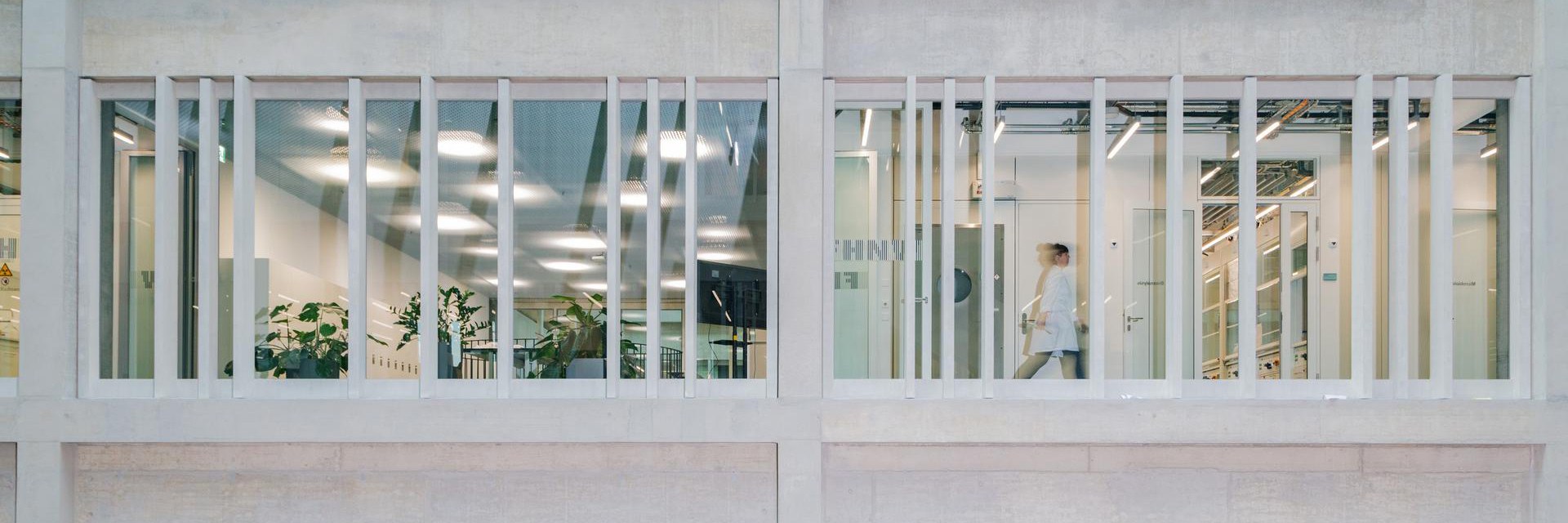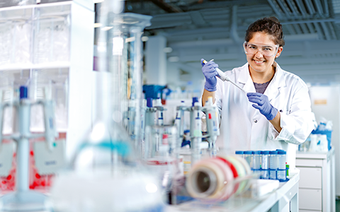
FHNW School of Life Sciences
Study and research at the interface between nature, technology, medicine and the environment.
Based in Muttenz near Basel, the FHNW School of Life Sciences is part of Europe’s largest life sciences centre and lies at the heart of pharmaceutical and medical technology, the chemical industry and environmental and biotechnology. It is here that we train skilled specialists and come up with solutions to the social and economic challenges of tomorrow. We are committed to developing new preventive and therapeutic products and services, improving people’s quality of life and promoting a sustainable attitude to the environment.
From research to practice
We use our industry network to give our students a comprehensive insight into real-life applications during their studies and to help develop our degree programmes further with the help of industry. Together with our partner companies, we conduct application-based research into the most cutting-edge issues facing the life sciences sector. The expertise and experience of our lecturers and researchers with their extensive network and our state-of-the-art infrastructure are the key to our success.
With our practice-based initial and continuing education and application-based research, we have been playing a pivotal role in further enhancing Northwestern Switzerland as a life sciences centre since the School was founded in 2006.








